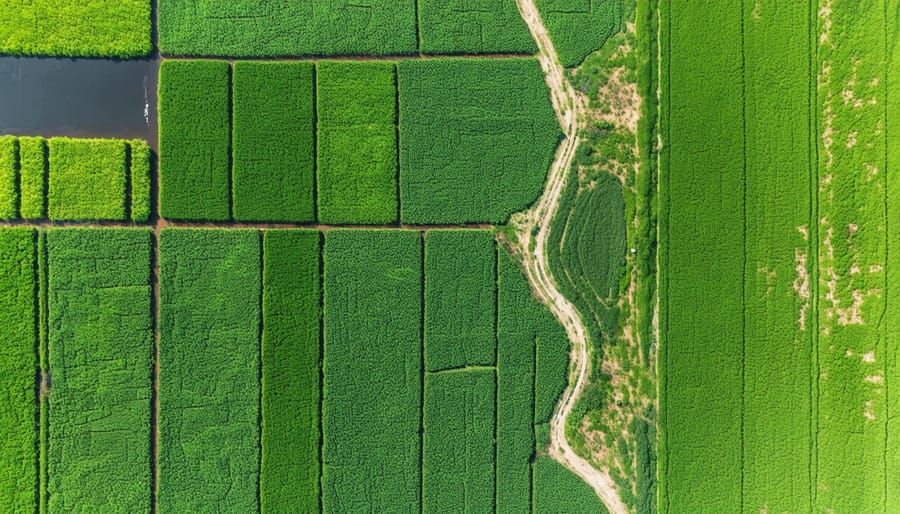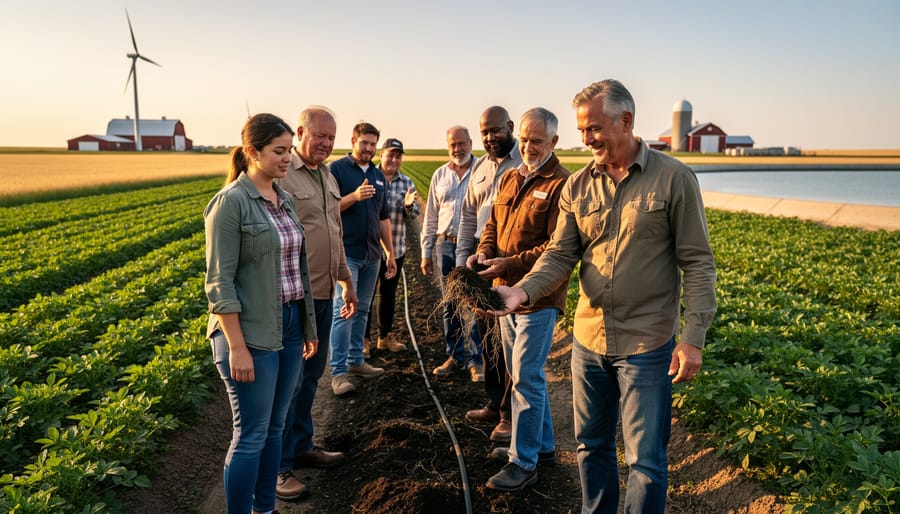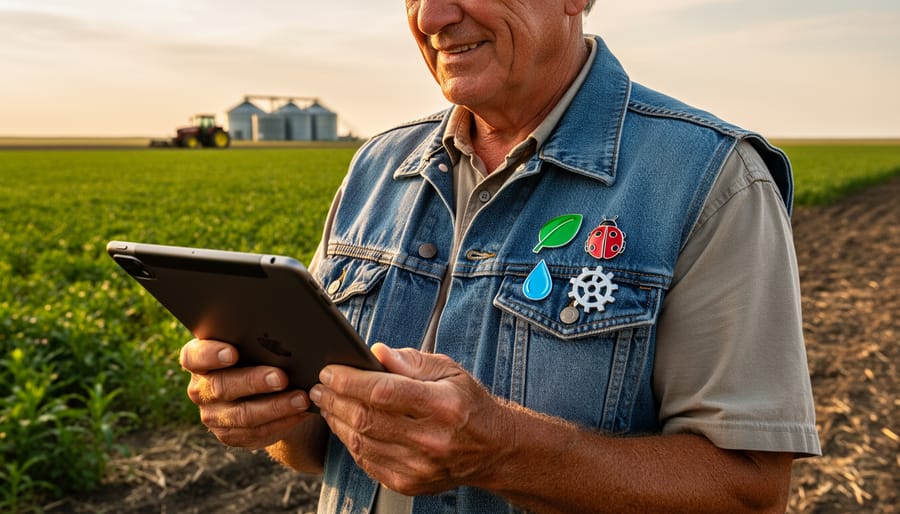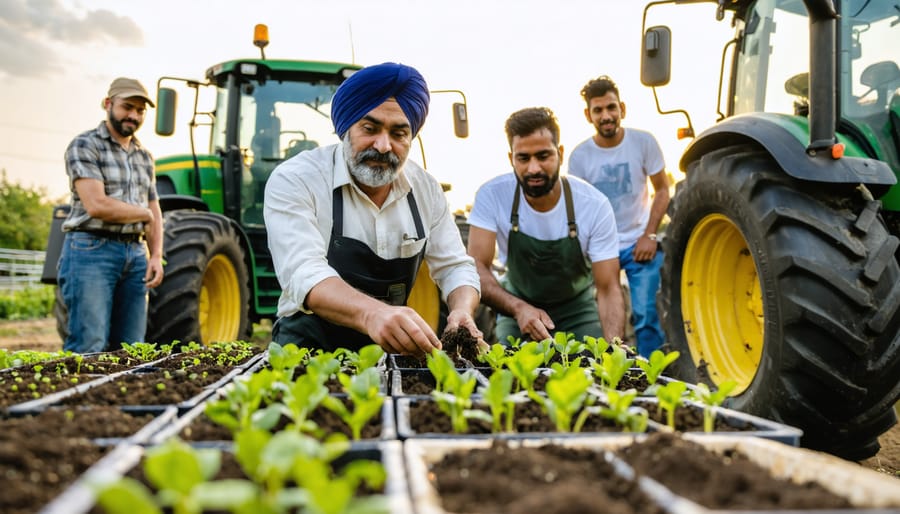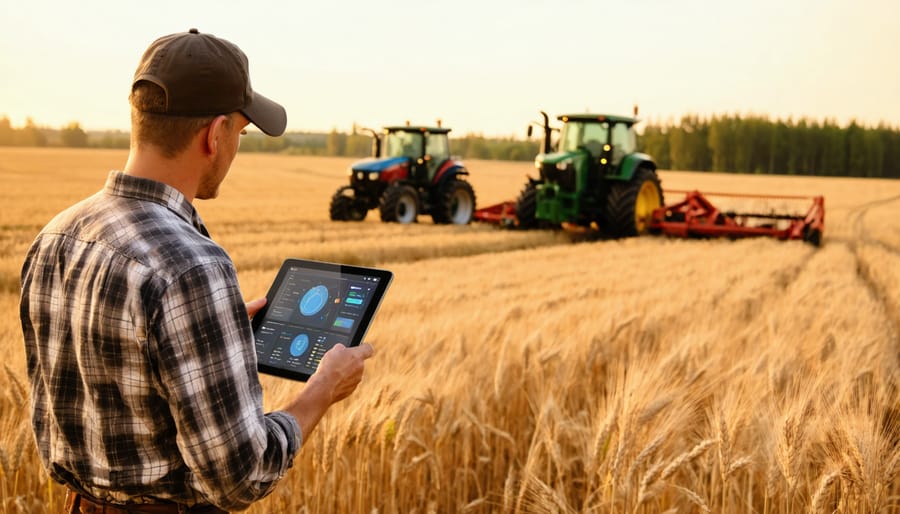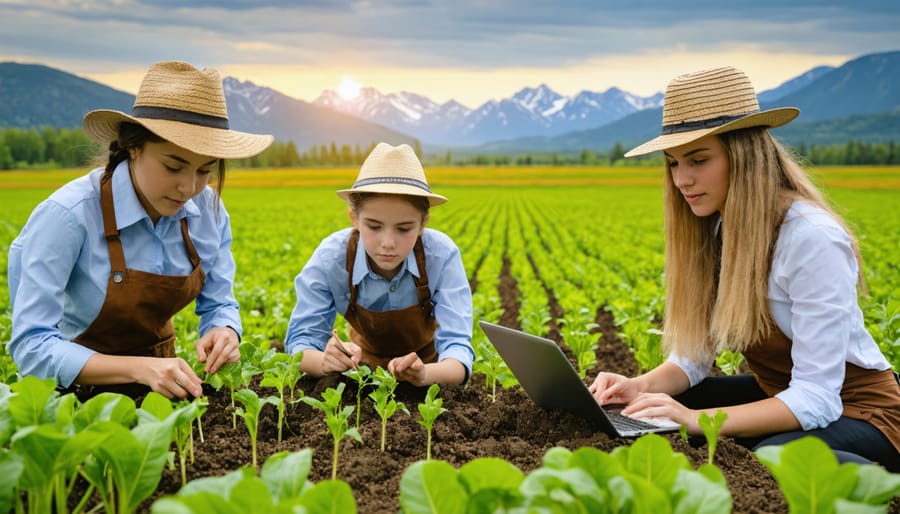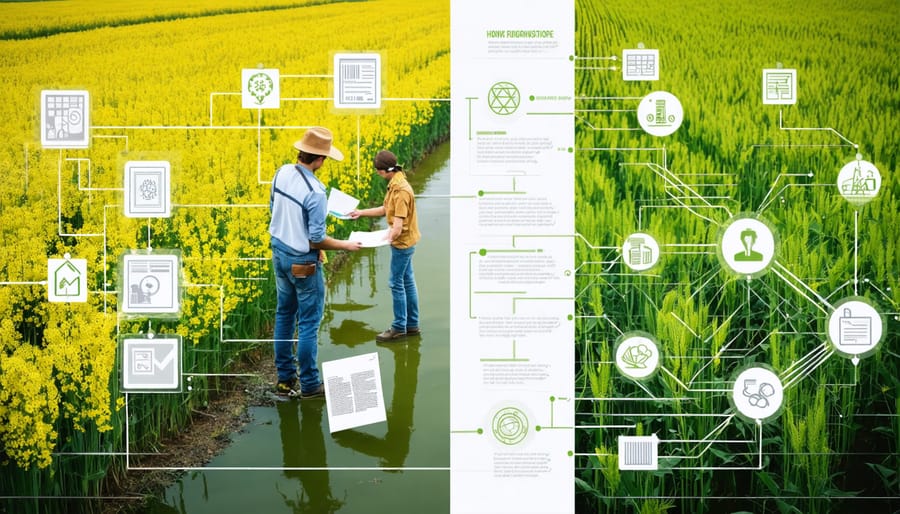Agroecology programs in Alberta are transforming traditional farming practices into sustainable food production systems while inspiring the next generation of agricultural leaders. These innovative educational initiatives combine hands-on field experience with ecological principles, offering farmers and agricultural professionals practical solutions for building resilient food systems. By integrating Indigenous knowledge, modern scientific research, and local farming wisdom, Alberta’s agroecology programs are creating a new paradigm for agricultural education that prioritizes both environmental stewardship and economic viability. Students learn to optimize soil health, enhance biodiversity, and implement climate-smart farming techniques while developing strong connections within their local agricultural communities. Whether you’re a seasoned farmer looking to transition to more sustainable practices or a newcomer to agriculture, these programs provide the technical skills, ecological understanding, and community support needed to succeed in modern regenerative farming.
The Rise of Agroecology in Alberta
From Traditional to Ecological Farming
Alberta’s agricultural landscape has undergone significant transformation over the past century. From the early homesteaders who relied on traditional farming methods to today’s innovative producers embracing sustainable farming practices, our region’s agriculture continues to evolve.
The shift began in the 1980s when many farmers started questioning conventional farming’s long-term viability. Rising input costs, soil degradation, and changing weather patterns prompted a search for alternative methods. Local farming families, drawing from both traditional knowledge and emerging research, began experimenting with cover crops, reduced tillage, and natural pest management.
Today, this transition continues as more producers recognize the benefits of ecological approaches. Many Alberta farmers are discovering that working with nature, rather than against it, can improve soil health, reduce operational costs, and build resilience against climate challenges. This evolution isn’t just about changing techniques; it’s about fostering a deeper understanding of agricultural ecosystems and their interconnections with our communities and environment.
Current Program Landscape
Across Canada, agroecology programs have taken root in various forms, with Alberta emerging as a hub for innovative agricultural education. The University of Alberta’s Faculty of Agricultural, Life & Environmental Sciences offers comprehensive programs that combine traditional farming knowledge with modern sustainable practices. These programs range from certificate courses to full degree options, accommodating both full-time students and working farmers.
Several colleges throughout the province, including Olds College and Lakeland College, have integrated agroecology principles into their agricultural programs. These institutions provide hands-on learning opportunities through demonstration farms and field laboratories, where students can directly apply ecological farming methods.
Community-led initiatives have also flourished, with organizations like Young Agrarians offering mentorship programs and land-linking services. The Organic Alberta association provides workshops and field days focused on agroecological practices, while Agriculture and Agri-Food Canada supports research projects through various funding streams.
Indigenous communities across Alberta are leading important programs that combine traditional ecological knowledge with modern sustainable farming practices, creating unique learning opportunities for both Indigenous and non-Indigenous farmers.
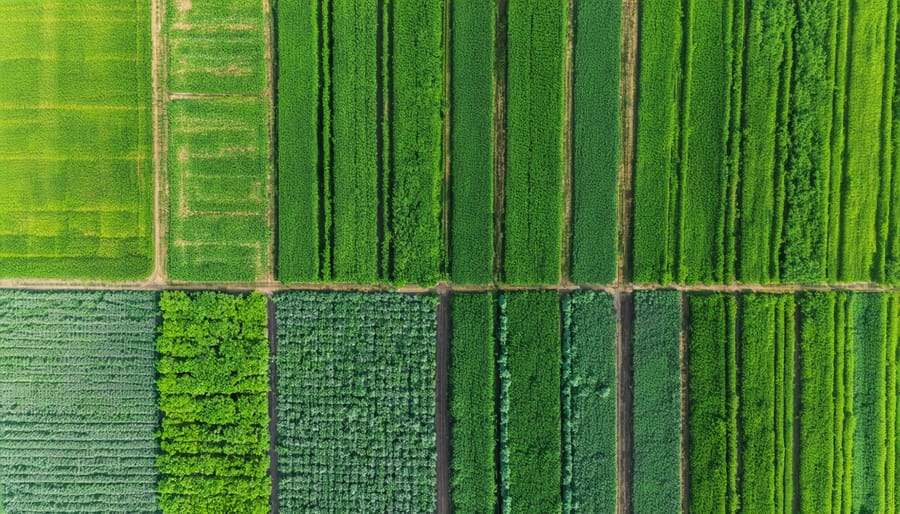
Core Components of Alberta’s Agroecology Programs
Hands-on Learning Experiences
Agroecology programs in Alberta emphasize learning by doing, offering students extensive hands-on experience throughout their education. Students spend approximately 50% of their program time in the field, working directly with soil, crops, and livestock on demonstration farms and partner properties.
Practical training includes seasonal activities like spring seeding, summer crop management, and fall harvest operations. Students learn essential skills such as soil testing, composting techniques, and integrated pest management through guided fieldwork sessions. Many programs partner with local organic farms, giving participants exposure to real-world sustainable farming practices.
The field components typically include:
– Operating sustainable farming equipment
– Implementing crop rotation systems
– Managing livestock in pasture-based systems
– Building soil health through various techniques
– Installing and maintaining irrigation systems
– Developing farm management plans
Workshops and field days connect students with experienced farmers who share their knowledge of local growing conditions and successful ecological practices. These mentorship opportunities provide valuable networking connections and help students build confidence in applying sustainable farming methods in the Alberta context.
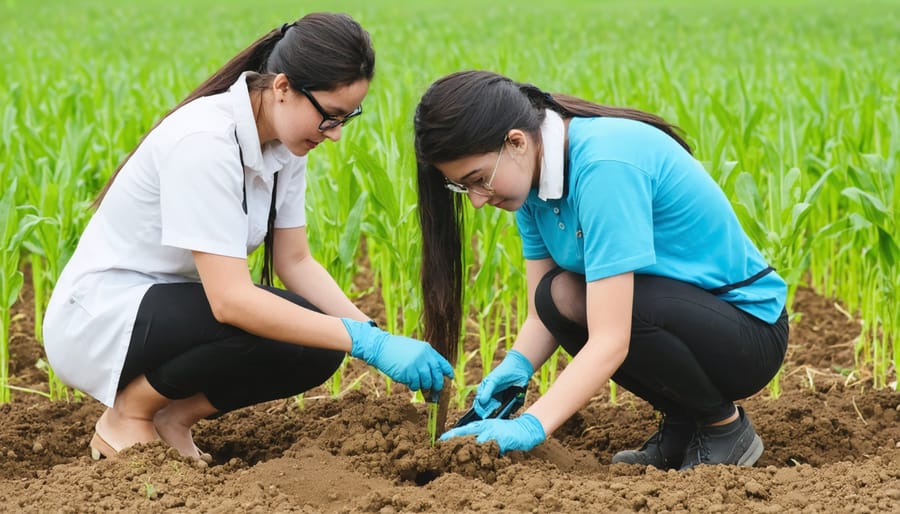
Traditional Knowledge Integration
Alberta’s agroecology programs place significant emphasis on integrating Indigenous and traditional farming knowledge, recognizing that these time-tested practices have sustained communities for generations. Local First Nations communities, including the Blackfoot and Cree, contribute valuable insights about sustainable land management, crop diversity, and seasonal planting cycles.
Programs typically feature Elder-led workshops where traditional methods of companion planting, seed saving, and natural pest management are shared with students. These sessions often take place on-site at community gardens or traditional teaching lands, allowing for hands-on demonstration of techniques that have proven effective in Alberta’s unique climate.
Many programs incorporate the concept of “Two-Eyed Seeing,” which combines Indigenous wisdom with contemporary scientific approaches. For example, traditional knowledge about drought-resistant native plants is integrated with modern irrigation techniques to create more resilient farming systems.
Local farming families also contribute generational knowledge specific to Alberta’s growing conditions. Their expertise in soil management, frost protection, and weather prediction complements academic coursework. This blend of traditional and contemporary knowledge creates a comprehensive learning experience that honours the past while preparing farmers for future challenges in sustainable agriculture.
Scientific Research and Innovation
Research in Alberta’s agroecology programs combines traditional farming wisdom with cutting-edge scientific methods to develop sustainable agricultural solutions. Local research stations collaborate with farmers to conduct field trials that assess soil health, biodiversity, and crop resilience under various conditions.
The integration of modern agricultural technologies has revolutionized data collection and analysis. Farmers now use soil sensors, drone mapping, and precision agriculture tools to make informed decisions about crop management and resource allocation.
Innovation hubs across the province focus on developing region-specific solutions, such as drought-resistant crop varieties and natural pest management strategies. These research initiatives often involve partnerships between universities, agricultural organizations, and local farming communities, creating a collaborative approach to sustainable agriculture.
Recent studies have shown promising results in reducing chemical inputs while maintaining crop yields through integrated pest management and companion planting techniques. Research teams are also exploring indigenous agricultural practices and their application in modern farming systems, acknowledging the valuable knowledge passed down through generations of Canadian farmers.
The findings from these research programs are regularly shared through farmer-to-farmer networks, workshops, and digital platforms, ensuring that scientific innovations directly benefit the farming community.
Success Stories from Alberta’s Farms
Family Farm Transformations
The Mackenzie family farm in Olds, Alberta, stands as a shining example of agroecological transformation. After participating in the regional agroecology program in 2019, Sarah and John Mackenzie revolutionized their 400-hectare operation by implementing integrated pest management and diversifying their crop rotation. Within two years, they reduced chemical inputs by 40% while maintaining profitable yields.
In Lacombe, the Hansen family dairy operation demonstrates how agroecological principles can transform livestock farming. By incorporating silvopasture techniques and rotational grazing, they’ve improved soil health and reduced feed costs by 30%. Their success has inspired neighboring farms to explore similar practices.
The Chen market garden in Red Deer showcases how even smaller operations can benefit from agroecological approaches. After learning about companion planting and natural pest control methods, their 2-hectare vegetable farm has become a model for sustainable intensive farming, supplying local restaurants and farmers’ markets while using 50% less water than conventional methods.
These transformations extend beyond individual success stories. The participating farms have formed a supportive network, sharing knowledge and resources. Many now host field days and workshops, creating a ripple effect throughout Alberta’s farming community. Their experiences prove that combining traditional farming wisdom with ecological principles can lead to both environmental and economic benefits while strengthening local food systems.
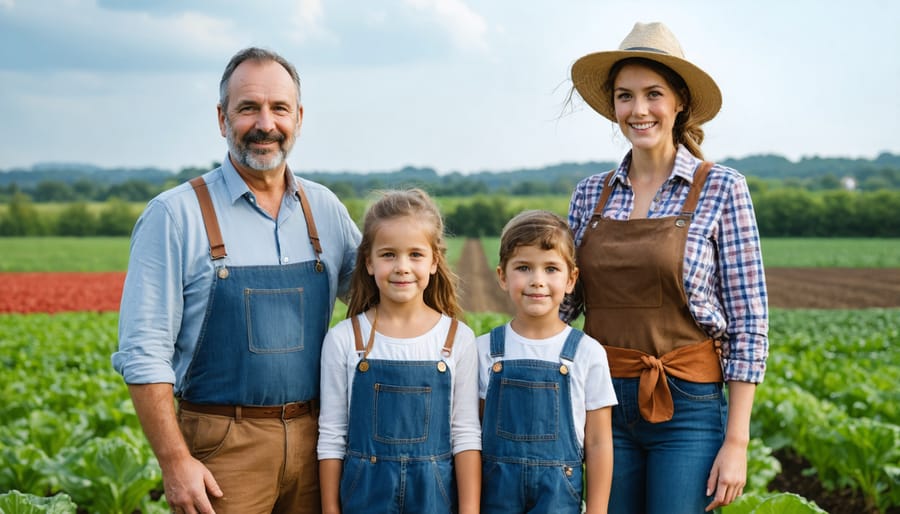
Community Impact Profiles
Agroecology programs have sparked remarkable transformations across Alberta’s rural communities, extending far beyond individual farm boundaries. Through community-driven farming initiatives, these programs have created robust local food networks that strengthen regional economies.
In Lacombe County, for instance, the introduction of agroecological practices has led to the establishment of three new farmers’ markets, creating opportunities for over 50 local producers. Similar success stories have emerged in Red Deer, where collaborative farming networks have generated an estimated $2.3 million in additional revenue for participating farms while supporting 15 new agricultural businesses.
The ripple effects are evident in rural employment, with agroecology programs fostering job creation in sustainable agriculture, food processing, and agritourism. Young farmers, in particular, have found new pathways to enter agriculture through these programs, helping to address the crucial issue of farm succession in aging communities.
Local schools have also benefited, with many incorporating agricultural education into their curricula through partnerships with nearby farms. This connection has strengthened community ties while ensuring the next generation understands the importance of sustainable farming practices. The programs have become catalysts for rural revitalization, proving that environmental stewardship and economic prosperity can work hand in hand.
Future Growth and Opportunities
New Program Developments
Several exciting new developments are transforming Alberta’s agroecology education landscape for 2024 and beyond. Olds College has announced the launch of their Advanced Regenerative Agriculture Certificate, a flexible online program designed to accommodate working farmers’ schedules. This innovative curriculum combines traditional ecological knowledge with modern sustainable farming practices.
The University of Alberta is expanding its Agricultural Sciences program to include a specialized stream in agroecological systems, set to begin in September 2024. This program will feature hands-on learning opportunities at the university’s research farm and partnerships with local producers.
Lakeland College has introduced a new mentorship initiative connecting experienced regenerative farmers with students and early-career producers. This program includes regular field days, workshop sessions, and one-on-one guidance throughout the growing season.
In response to community demand, several technical institutes across the province are developing micro-credential courses focused on specific aspects of agroecology, such as soil health management and integrated pest control. These short-term programs offer practical skills development for farmers looking to transition to more sustainable practices.
The Agricultural Research and Extension Council of Alberta is also rolling out a mobile learning lab that will travel to rural communities, bringing hands-on agroecology training directly to farmers. This initiative aims to make education more accessible to remote agricultural communities while fostering local knowledge exchange.
Getting Involved
Getting involved in agroecology programs in Alberta is straightforward and offers multiple entry points for farmers at any stage of their journey. The Environmental Farm Plan (EFP) program serves as an excellent starting point, offering free workshops and one-on-one consultations to help assess your farm’s environmental strengths and areas for improvement.
Local agricultural societies and farmer-led organizations regularly host workshops, field days, and mentorship programs throughout the province. These hands-on learning opportunities allow you to connect with experienced practitioners and see agroecological principles in action. The Alberta Farm Fresh Producers Association and Organic Alberta frequently organize such events, particularly during the growing season.
For those seeking formal education, Olds College and Lakeland College offer certificate programs and short courses in sustainable agriculture and agroecological practices. Many of these programs are designed to accommodate working farmers, with flexible scheduling and distance learning options.
Financial support is available through various channels, including the Canadian Agricultural Partnership (CAP) program, which provides funding for implementing sustainable farming practices. The Agriculture Financial Services Corporation (AFSC) also offers specialized loans for transitioning to more sustainable farming methods.
To begin your agroecology journey, contact your local agricultural fieldman or visit your nearest Agriculture and Forestry office. They can connect you with resources, programs, and a network of farmers already practicing agroecological methods in your area.
As we look to the future of agriculture in Alberta, agroecology education stands as a crucial bridge between traditional farming wisdom and sustainable innovation. The programs we’ve explored throughout this article represent more than just educational opportunities – they’re catalysts for transforming our agricultural landscape into one that’s both environmentally conscious and economically viable.
The success stories from farmers across the province demonstrate how agroecology education has enabled them to reduce input costs, improve soil health, and build resilient farming systems that withstand our challenging prairie climate. As climate change continues to impact agricultural practices, these educational programs will become increasingly valuable for both new and experienced farmers.
The growing network of mentors, educators, and practitioners in Alberta’s agroecology community provides a strong foundation for future expansion. With more farmers embracing sustainable practices each year, we’re seeing a ripple effect throughout rural communities as knowledge is shared and success stories multiply.
Looking ahead, the integration of traditional ecological knowledge with modern sustainable farming techniques will continue to shape these educational programs. The commitment from agricultural institutions, community organizations, and government bodies to support agroecology education signals a promising future for sustainable farming in Alberta.
By investing in agroecology education today, we’re cultivating not just crops, but a new generation of agricultural stewards who will ensure the long-term health of our farms, communities, and ecosystems.

